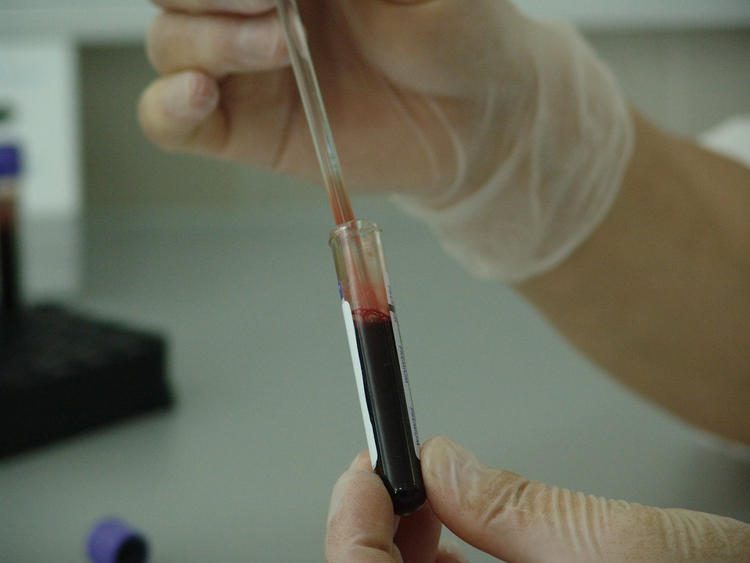Blood transfusions have been used to save lives for decades, but now one startup wants to use the medical procedure to combat the effects of aging by injecting older people with young blood. The treatment is called “Ambrosia”, after the mythological food of the Greek gods, which granted whoever consumed it longevity or immortality.
It only takes two hours to have two liters of plasma from donors aged 16 to 25 into your body, but according to Ambrosia founder Jesse Karmazin, the results are nothing-short of miraculous. He once called it “plastic surgery from the inside out“, told one reporter that while the transfusion doesn’t grant immortality, it “comes pretty close”, and told another journalist that just one infusion of young blood “dramatically improves people’s appearance, their memory and their strength”. The company even ran a medical study that officially ended in January of 2018, but despite boasting about its “really positive” results, Ambrosia Medical has yet to make those results public. And that’s what makes this treatment so controversial in the eyes of many health experts – no one has ever offered any solid proof of its efficacy.

Photo: PublicDomainPictures/Pixabay
34-year-old Karamazin founded Ambrosia Medical in 2016, after graduating from Stanford Medical School. He got the idea for infusing young blood into older people with the goal of stopping or at least slowing down the effects of aging, after reading several studies in which young and old mice were surgically conjoined in order to observe the effects of mixing their blood. Researchers reported cases in which the older mice became temporarily stronger and exhibited slightly improved health, and Karamazin was confident that these same type of result could be replicated in humans.
In the summer of 2016, Jesse Karmazin announced that he would start charging people 35 and over $8,000 to participate in a “clinical trial” where they would be injected with about 2 liters of plasma from young donors. Believe it or not, he didn’t have to get an approval from the Food and Drug Administration, as this was technically a simple transfusion, the well-established medical procedure that has been performed for many decades. The only difference here was the goal. Instead of using transfusion to treat serious health conditions, Ambrosia Medical was promoting it as an anti-aging treatment.
“There are pretty much people from most states, people from overseas, people from Europe and Australia,” Karamazin told CBS. But finding blood banks willing to provide dozens of gallons of young blood was tricky, as blood banks didn’t separate blood by age or sell it for rejuvenation purposes. However, he was eventually able to find a couple of partners and Ambrosia Medical reportedly performed more than 150 transfusions, with some patients returning for multiple treatments. The clinical study ended in January of last year, but the company has yet to make the results public. Karamazing recently told the Huffington Post that he was eager to share the results with the world, and would eventually publish them in a peer-reviewed journal, but didn’t specify when.
Ambrosia has been getting a lot of attention in the media over the last two years, with the latest articles dating back to last fall, when Jesse Karamazin announced that he would be opening a New York clinic in order to make the treatment available to more people. That clinic has yet to open but Ambrosia Medical is not offering young blood infusions in San Francisco and Tampa. The age limit has been lowered from 35 to 30, but prices have increased from $8,000 to $12,000 per transfusion.
The Ambrosia Medical founder has become more careful about the claims he makes about the young blood infusions his company offers, but he insists that the treatment is a “really good use of people’s health care dollars,” adding that patients with certain conditions “should be getting treatment right away”. However, many health experts have declared themselves skeptical about the efficacy of Ambrosia, with some even warning about potentially hazardous effects.
“There’s just no clinical evidence [that the treatment will be beneficial], and you’re basically abusing people’s trust and the public excitement around this,” Stanford University neuroscientist Tony Wyss-Coray told Science Magazine.
“Every time you do it you’re magnifying your immune response, reputable physicians who do this for life-threatening conditions know this risk,” Michael Conboy, a researcher at University of California at Berkeley, said about the side-effects of blood transfusions. “It is well known in the medical community — and this is also the reason we don’t do transfusions frequently — that in 50% of patients there are very bad side effects. You are being infused with somebody else’s blood and it doesn’t match, that unleashes a strong immune reaction.”






